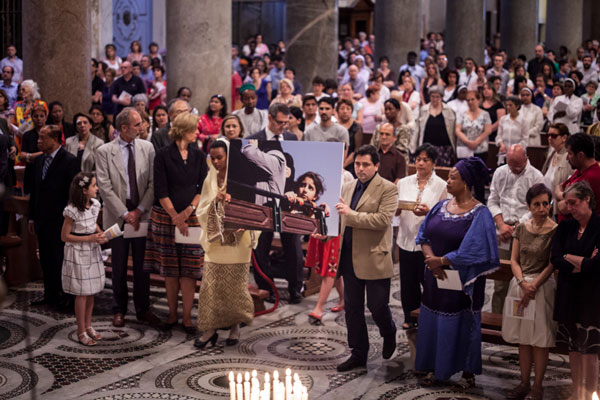The Sant’Egidio Community, all over the world, continues to fight hard in defense of the dignity and value of human life, and to abolish the death penalty. Sant’Egidio has participated in mid-June in the fifth congress of the “World Coalition Against the Death Penalty”, a network that brings together the most prominent and active associations fighting for the abolition of capital punishment, but also representatives of worldwide public opinion, politicians, judges, and journalists; it has reaffirmed through the words of its president, Marco Impagliazzo, that “putting an end to human life means putting an end to hope”; and has protested against the end of the moratorium in Pakistan and the executions carried out in Nigeria.
As was written by Henry Ezike, the person in charge of Sant’Egidio’s Nigerian communities, “life is a sacred gift that comes from God, every man is to be loved and protected, under any circumstance […] No life can be paid for by the taking of another. There is no justice without life! […] As a catholic community Sant’Egidio will continue to promote the abolition of the death
penalty until it is banished from the history of mankind”.
It is not an impossible dream. Often giant steps in humanity were accomplished by small men, by forces that seemed weak and minoritarian, but were able to interpret something deep and prophetic.
For example, this is what happened with the abolition of slavery during the first half of the 1800s. A small creative minority, essentially made up of religious activists, managed to transform the leading slave trading country, the British empire, into the leading abolitionist nation. All this notwithstanding the fact that the trade and exploitation of slaves was extremely profitable. The movement to abolish slavery triggered a real collective change of conscience. Replicated in thousands of examples, wherever possible, the logo for the anti slavery movement, a slave saying “ Am I not a man and a brother?” - spoke loudly to society as a whole, touched culture and politics and forced them to take a good look at their custom and positions on the matter.
Isn’t the man on death row a human being as well? This is why Sant’Egidio promotes the world day labeled “City for life-City against the death penalty” the 30th of November every year. The hope is that, more than last year, many other cities will join in a battle of life, progress and humanity.




.JPG)
.JPG)